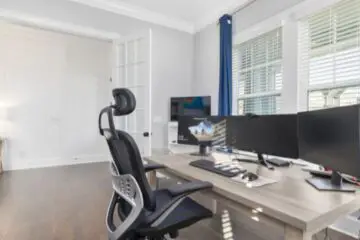Make Your Bedroom More Sleep-Friendly
We all recognize the value of getting a good night’s sleep. It rejuvenates the body, improves mood, enhances cognitive function, and is fundamental for overall health.
But with our busy schedules and omnipresent electronic distractions, many of us are not getting the quality sleep we need. One of the most significant factors in achieving restful sleep is the environment in which we sleep, i.e., our bedroom.
In this article, we’ll look at some practical methods for converting your bedroom into a peaceful haven for sleeping. As a bonus, we’ll see how integrating the concept of Awara value can make a world of difference.
10 Ways to Make Your Bedroom More Sleep-Friendly
1. Prioritize Your Bed
Your bed is the centerpiece of your bedroom, and rightfully so—it’s where you spend hours resting every night. Purchase pillows and a mattress of high quality that are supportive of your body type and sleeping preferences.
The Awara value principle highlights the importance of recognizing value over just the price. Rather than looking for the cheapest mattress, search for one that provides the best value in comfort, durability, and support, like the mattresses from Awara.
2. Regulate Room Temperature
The temperature has a significant impact on how well you sleep. Most experts recommend keeping the bedroom around 60-67°F (15-19°C). You can always add or subtract blankets based on personal preference, but keeping the room cool often aids in deeper, more restful sleep.
3. Limit Light Exposure
Our bodies have an inherent sensitivity to the rhythms of daylight. Our circadian clock can be disrupted by artificial light in the evening, which can make it harder to fall asleep. To block out outside light, use blackout drapes or blinds. If you need light, use a dim nightlight or opt for warm, dimmable bedside lamps.
4. Drown Out Distractions
If you live in a noisy area, it can be tough to get uninterrupted sleep. If you want to block out noise, think about using a white noise machine, earplugs, or even a fan. Soft, consistent sounds can mask disruptive noises and lull you into a peaceful slumber.
5. Go Tech-Free
Blue light, which is produced by electronic devices, can interfere with the hormone melatonin’s ability to regulate sleep. By removing TVs, computers, and cell phones from your bedroom, you can make it a tech-free space. If you rely on an alarm to wake up, consider using a traditional alarm clock instead of your phone.
6. Incorporate Calming Colors
Colors evoke emotions and can influence our mood. Calming colors like soft blues, greys, and greens can have a soothing effect, making them perfect for a bedroom setting. Avoid bright, energizing colors as much as possible because they can be stimulating and detrimental to relaxing.
7. Aromatherapy
Certain smells, such as chamomile, lavender, and vanilla, have been shown to induce relaxation and sleep. Introduce these calming aromas into your bedroom through essential oil diffusers, scented candles, or sachets placed under your pillow.
8. Tidy Up
A clutter-free environment naturally leads to a clutter-free mind. Make it a routine to clean up your bedroom, keeping it free from unnecessary distractions. The act of decluttering itself can be therapeutic, and entering a tidy bedroom can instill a sense of calm and peace.
9. Introduce Plants
Indoor plants improve air quality and bring a touch of nature into your space, creating a serene environment. Plants like the snake plant, lavender, or aloe vera can be great additions, offering both aesthetic appeal and potential sleep benefits.
10. Personalize Your Space
Lastly, personalize your bedroom with items that relax and comfort you. This could be a favorite photo, artwork, or even soft, comforting textiles. A space that feels especially cozy and homey will always be more welcoming.
Conclusion
Making your bedroom more sleep-friendly doesn’t have to be an expensive or time-consuming task. By recognizing the inherent Awara value in prioritizing sleep and making thoughtful changes to your environment, you can optimize your space for rest. After all, a peaceful night’s sleep is priceless.








